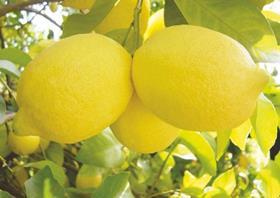
Spanish lemon producers are bracing themselves for a challenging 2017 campaign, with a bumper crop likely to lead to a significant overlap with Southern Hemisphere production.
The latest forecast from Ailimpo points to a harvest of 300,000 tonnes in 2017 – a 55 per cent increase on last season’s 193,680 tonne crop. The rise is due to a combination of favourable growing conditions during the winter and new plantations entering commercial production for the first time.
Ailimpo’s director José Antonio García warned that with Argentina and South Africa also increasing their production, the European market was likely to become “extremely competitive” in the coming years during the summer months. The South African crop is expected to weigh in at 360,000 tonnes this year.
However, Manuela Leyba of Argentina's Early Crop told Fruitnet that production in the South American country is down about 20 per cent this season and that exports could face difficulties sourcing fresh lemons for export as the prices being paid in the processing sector were high.
“For Spain, things are likely to get complicated from the beginning of June, when all three countries clash in the European market,” García said.
He pointed out that growers with quality labels such as GlobalGAP would be able to sell their crop for a higher price than those that didn’t possess them.
The 2017 campaign has got off to a strong start, with prices averaging €0.60-€0.70 per kg, well above the €0.20 per kg cost of production.
Nevertheless, Ailimpo warned that prices would deteriorate once Argentine lemons arrived on the market.
“Ailimpo’s goal is profitable production by competitive in the market while differentiating ourselves through service, quality and sustainability,” García said. “But don’t be fooled, if we can’t compete on price we will lose market share.”
Alfonso Gálvez Caravaca, of the Asaja Murcia agricultural union, described the quality and sizing of the 2017 Verna crop as excellent, leading to expectations that prices would be high. He said the creation of a new quality seal for Spanish lemons was a top priority for the industry as it would “help to position our fruit commercially on international markets and distinguish them from other sources such as Turkey and Argentina”.



